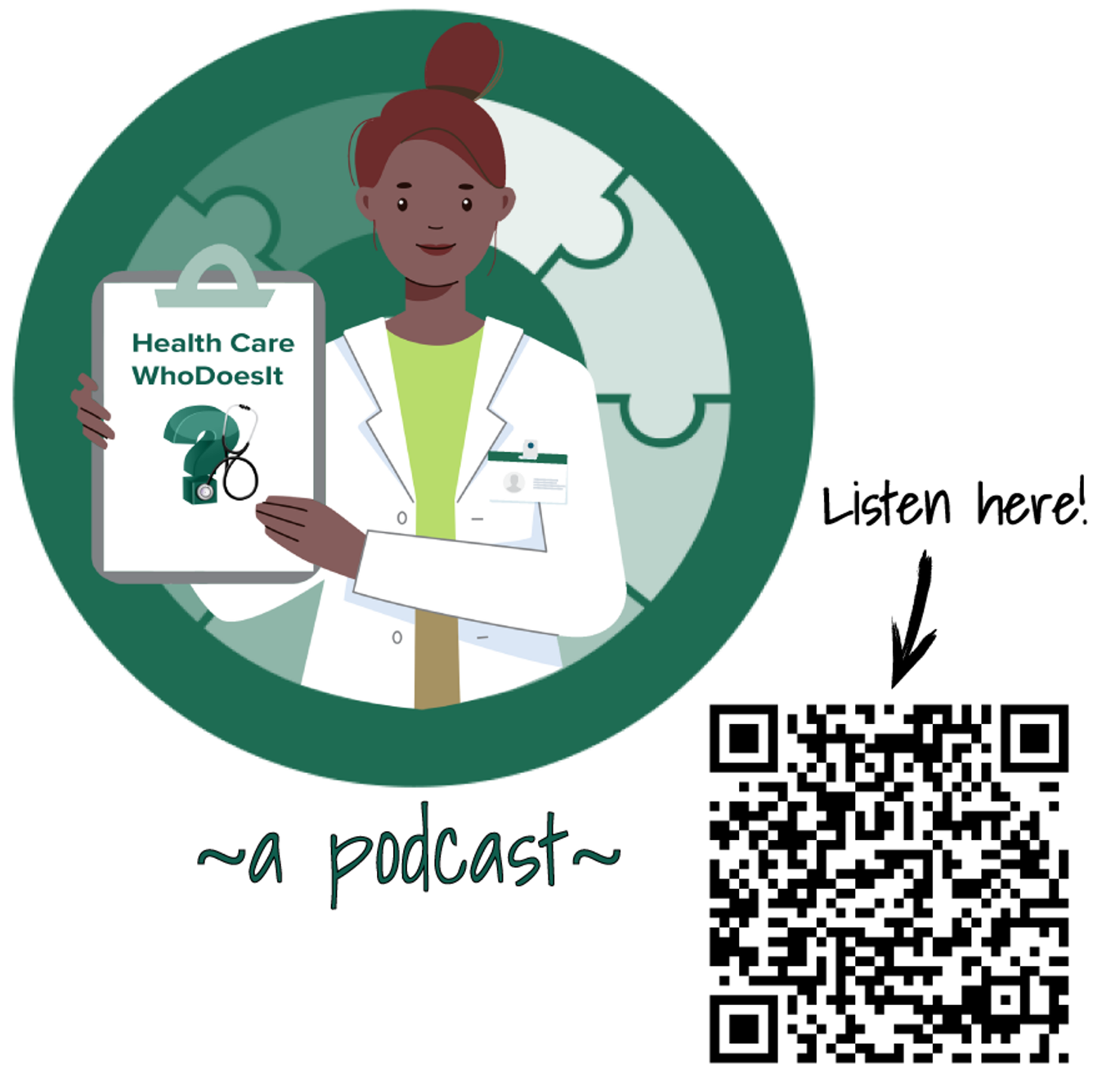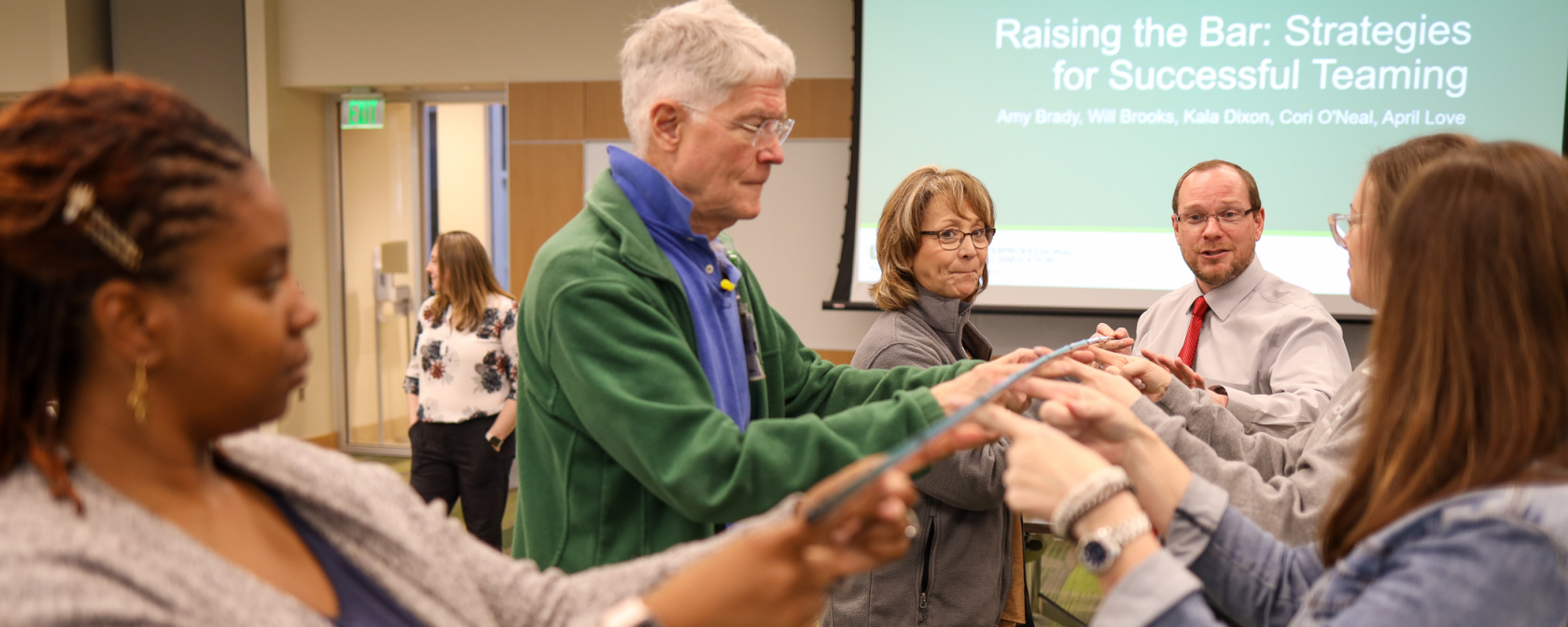Curriculum Development Materials
Linked below are several resources to help teachers add interprofessional activities to their curricula.
Click here for the brochure of current OIPC courses and activities
Health Care Who-Does-It?
When it comes to the roles and responsibilities of various members of the healthcare community, there is a gap in the knowledge amongst learners, healthcare professionals and the public. This podcast is a solution. It aims to explore and discuss the unique and common roles of various healthcare professionals as well as the misconceptions.
Episode 1 : Nurse Practitioner & Physician Assistant
Episode 2 : Physical Therapist (PT) & Occupational Therapist (OT)
Episode 3: Social Worker: Master & Independent Clinician
Episode 4: Psychologist & Psychiatrist
Episode 5: Geneticist & Genetic Counselor
Click here for the RSS link
Click here for the full size QR Code
Breaking the Ice
OIPC often starts IP activities by having each person give a 30-second “elevator speech” telling the other participants of the roles and myths of their profession.
Examples of how they can develop an elevator speech can be found:
On Mind Tools
On YouTube
Scopes of Practice
Sometimes you may need to bring in the perspectives of other professions. There is often overlap between different healthcare professions scope of practice. Several of our faculty have produced short videos describing their roles. See "Professional Elevator Speeches" page in the IP Toolkit.
Online Modules
Several institutions have developed online modules covering a variety of Interprofessional subject areas.
Why Work in Teams?
CUNY - 4 modules covering the IPEC Core Competencies (Values & Ethics, Roles & Responsibilities, Teams & Teamwork, Communications)
Carl in the Nexus:
Carl is an elderly man who with the chronic conditions of diabetes, heart disease, and emphysema. He lives alone in a single-room-occupancy unit in a large city, but struggles with everyday tasks, including taking his medication properly. As a result, his health is poor and he frequently goes to the emergency room for help.
The story explains Carl’s situation and how his ‘care and learning team’ of students, community members, and practitioners interact with him to ensure that he takes better care of himself and stays out of the emergency room.
University of Washington - Team Communication Challenges
Video 1 Video 2 Video 3
Resources that show the significance of Interprofessional teams
Interprofessional Teamwork in the aftermath of the Savannah Sugar Plant Explosion (12.5 minutes)
Interesting TED Talks
Healthcare Should be a Team Sport - Eric Dishman
Association for Prevention Teaching and Research (APTR) Curriculum Development Guide
The link below is to the APTR website, from which the curriculum development guide is available for download. The focus of the guide is on the design and implementation of interprofessional learning activities, with an emphasis on disease prevention and population health. These activities are linked to the U.S. national health goals and objectives outlined in Healthy People 2020.
Curriculum Development Guide for Health Professions Faculty - Advancing Interprofessional Clinical Prevention and Population Health Education
Source: Association for Prevention Teaching and Research, Healthy People Curriculum Task Force (Susan M. Meyer, PhD., Daid R. Garr, MD., and Clyde Evans, PhD)
University of New England (UNE) Clinical Interprofessional Curriculum (CIPC)
The link below is to the UNE CIPC website. The focus is on learning activities for graduate level health professions students in primary care clinical settings. The learning activities are based on the National Committee for Quality Assurance (NCQA) Patient-Centered Medical Home (PCMH) Recognition Standards.
UNE Clinical Interprofessional Curriculum (CIPC)
Evaluating Your IPE Offering
There are many options for evaluating your IPE Activities. The National (NEXUS) Center has many resources available on their Assessment & Evaluation pages.
Currently OIPC is using the "ICCAS" instrument for our activities. This was developed by McDonald et al. It uses a "post/pre" format that reduces the learners overestimating their IP competencies before undertaking an activity.
